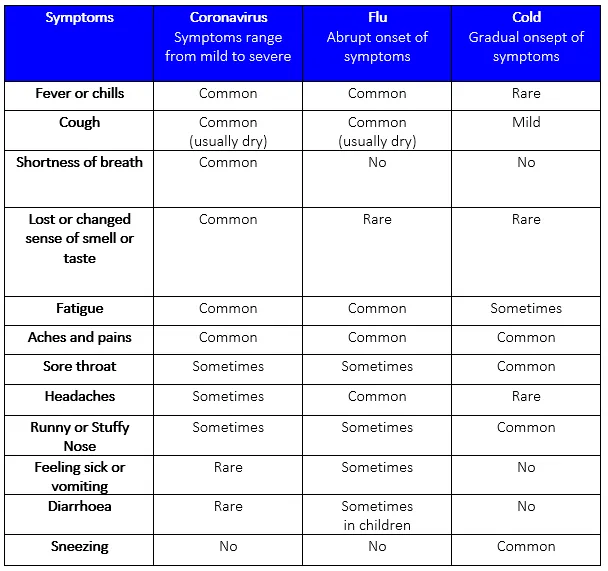
The Flu Vaccine - Should I get it?
Flu Symptoms
Nobody likes getting the runny nose, high fever, headache, and muscle aches – some of the most common flu symptoms.
Seasonal flu is a highly infectious illness caused by the flu virus. The infection in Ireland is more common in winter months because people spend more time in close contact with each other.
The virus spreads by coughing or sneezing. It can also survive on hands, worktops and objects, especially in low temperatures. You can get flu by touching a surface with the virus on it, and then touching your mouth, eyes, or nose.
Other flu symptoms can include:
- Sore throat
- Difficulty sleeping
- Loss of appetite
- Diarrhoea or tummy pain
- Nausea and vomiting
At Higgins Pharmacy Sligo we are providing Flu Vaccinations from September.
Receiving a flu Vaccine will help to protect yourself for flu season. The vaccine will decrease the risk of contracting the flu, especially if you are at high risk of developing severe flu complications.
The vaccine helps the immune system produce antibodies, allowing them to fight the virus if they come into contact with it.
Who Should Get Vaccinated?
HSE strongly recommends a flu vaccine if you:
- Are 65 years of age and over
- Are pregnant
- Are a child or adult with a long-term health condition
- Work in healthcare
- Have an impaired immune system due to deisease or treatment
- Are a carer or household contact of anyone at increased medical risk of flu
- Live in a nursing home or other long-term care facility
- In regular contact with pigs, poultry or waterfowl
If you’re otherwise healthy, there’s no need to visit your GP if you have flu-like symptoms. If you can, rest at home and drink plenty of water to avoid dehydration. Certain foods, probiotics, and vitamins can boost your immune system to give you that extra protection.
Reduce a Risk of Spreading
If you are at home with flu or taking care of someone at home follow these tips to help stop the flu spreading;
- if you have the flu stay in one room with the door closed and, if possible a window open
- family members should limit the time spent with someone with flu and avoid sharing dishes, books, toys etc
- Avoid face to face contact with someone who has the flu
- Discourage visits from people not living in the house
- If you have flu, cover your nose and mouth with disposable tissues when sneezing or coughing. If tissues are not available, coughing or sneezing into your arm or sleeve (not hand) is recommended
- Used tissues should be put into a bin and the bin sealed in the room and immediately taken outside for collection
- Wash hands often with soap and water or alcohol-based hand rub, especially after coughing and sneezing
- Everyone in the house should frequently clean their hands with soap and water or an alcohol-based hand rub, especially after every contact with someone with flu or their room or bathroom
- Avoid touching the eyes, nose and mouth with your hands as this helps spreads the flu virus
- Disinfect surfaces at home items inside the house should be disinfected regularly with bleach-based household cleaners
- Carry a hand sanitiser gel
If necessary, take paracetamol to lower a high temperature and relieve possible aches.
Flu or Cold – Know the Difference
Cold and flu symptoms can be similar; however, a cold is a minor respiratory illness than the flu. While cold symptoms mostly last for a few days, flu symptoms can make you feel sick for a few days to weeks.
The flu can also result in serious health complications.
Colds are caused by viruses, the same as the flu. Remember, antibiotics cannot treat viruses.
Comparing Symtoms of Covid, Flu and Cold

The flu vaccination is available at Higgins Pharmacy Sligo for more in formation. More information or booking is available here.
Have questions? Connect with our highly trained pharmacists online, by phone, or drop into any of our Sligo Pharmacies in Market Cross, or Teeling Street.




